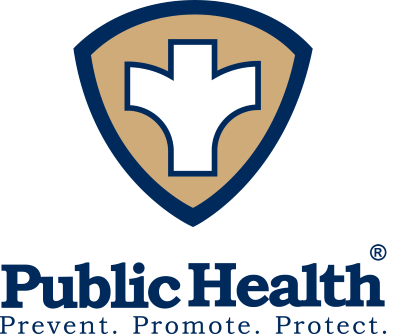
Influenza (Flu)
Prevention of Seasonal Influenza (Flu)
Seasonal Influenza or the Flu is a respiratory illness that can have serious complications, especially for people at higher risk. The best way to reduce your risk from seasonal flu and protect those at high risk is to get a flu vaccine every year. For information about current vaccine availability call the Health Unit at (417)859-2532.
Important Information About Influenza (Flu)
What is Seasonal Influenza (Flu)?
Seasonal influenza, commonly known as “the flu,” is caused by influenza viruses that infect the respiratory system (nose, throat, and lungs). Unlike the common cold, the flu can lead to severe illness and life-threatening complications. In the United States, an estimated 5% to 20% of the population gets the flu each year, with over 200,000 hospitalizations due to flu-related complications.
Flu seasons are unpredictable and can be severe. From 1976 to 2006, annual flu-associated deaths in the U.S. ranged from about 3,000 to 49,000. People at high risk for serious complications include older adults, young children, pregnant women, and individuals with certain health conditions.
The best way to prevent seasonal flu is by getting vaccinated each year.
What are the symptoms of influenza?
Influenza, or the flu, is a contagious illness caused by flu viruses, leading to mild to severe symptoms and sometimes even death. It typically begins suddenly and is more severe than a cold. Common symptoms include:
- Fever* or chills
- Cough
- Sore throat
- Runny or stuffy nose
- Muscle or body aches
- Headaches
- Fatigue
- Vomiting and diarrhea (more common in children)
*Not everyone with the flu will have a fever.
Most people recover within a few days to two weeks, but some may develop serious complications such as pneumonia, bronchitis, sinus and ear infections. The flu can worsen chronic conditions like asthma or congestive heart failure. The best defense against the flu is an annual vaccination.
What are the benefits of flu vaccination?
Influenza, or the flu, is a contagious illness caused by viruses. The flu can cause mild to severe illness and can sometimes be deadly. Getting a flu vaccine each year has many benefits:
- It can prevent you from getting the flu.
- It protects people around you who are more vulnerable, like older adults, young children, and those with health conditions.
- If you do get sick, the vaccine can make your illness milder.
- It reduces the risk of serious outcomes like hospitalizations and deaths.
Studies have shown that the flu vaccine significantly reduces the risk of flu-related complications, hospitalizations, and deaths for people of all ages, especially those with chronic health conditions. It also helps protect pregnant women and their babies for up to 6 months after birth.
Who can get the flu vaccine?
Who Can Get the Flu Shot
Approved for All Ages: There are flu shots available for everyone aged 6 months and older. This includes pregnant women and people with chronic health conditions.
Who Should Not Get the Flu Shot
Too Young: Children under 6 months old are too young to receive the flu shot.
Severe Allergies: People with severe, life-threatening allergies to the flu vaccine or its ingredients (such as gelatin or antibiotics) should not get the flu shot.
Note: Flu Mist is no longer available.

